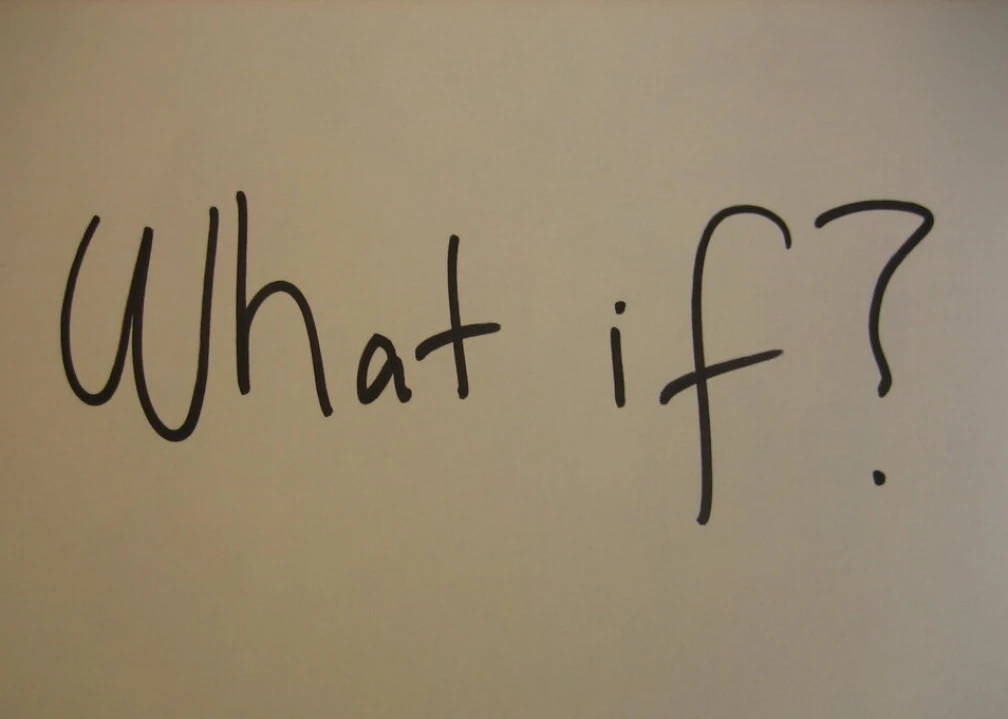Last time we left off our grammar lessons, we were talking about the 1st conditional. So, in order to not to put too much on our plate, I thought we’d continue on the same line and talk about the 2nd conditional. While the 1st type conditional is used to talk about reality, the 2nd type is used to talk about possibilities.
The construction of these type of sentences is pretty simple and more or less always the same, however it’s the conjugation that is kind of hard: se (if) sentence with congiuntivo imperfetto, main sentence with the condizionale semplice. This is one of the two possible sentences constructions, but let us take a step at a time, no rushing. I know these are all tenses that scare Italian learners, but I think that getting this structure down is the way to start using these scary conjugations!
Let us take a step back. I like to remember the congiuntivo imperfetto as the “ss” tense. Why? Well, because except for voi, all the other forms have a double “s” in it. For example, avere – to have – goes: io avessi, tu avessi, lui/lei avesse, noi avessimo, voi aveste, loro avessimo. The same goes with other verbs, amare (-are) – to love – io amassi, tu amassi, lui/lei amasse, noi amassimo, voi amaste, loro amassero, or vedere (-ere) – to see – io vedessi, tu vedessi, lui/lei vedesse, noi vedessimo, voi vedeste, loro vedessero, and sentire(-ire) – to feel/hear – io sentissi, tu sentissi, lui/lei sentisse, noi sentissimo, voi sentiste, loro sentissero.
Then there’s the condizionale semplice, which has the perk of having the same exact endings for all types of regular verbs: - ei, -esti, -ebbe, -emmo, -este, -ebbero. In order to conjugate a verb a the condizionale semplice, you simply need to remove the last letter and add the ending. There is just one big detail you must remember: verbs that end in -are, change that “a” in “are” into an “e”. It’s easier if I just show you: amare, becomes amerei, not amarei; arrivare – to arrive – is arriverei, not arrivarei; prestare – to lend – is presterei, not prestarei, and so on, for all the pronouns.
At the beginning, I said that the second type conditional is used for possibilities. You might ask: okay, but what’s the main difference with the first type? To make the distinction more clear, I like to think of the second conditional as the “what if” type, that is: if you had the chance, what…? What would you do? What would happen? What would you choose? So, it is something that is not reality currently, but you wonder or ponder about, and it is not impossible either. It is not likely to happen, as for that you would use the first type conditional, but a little dreaming has never hurt anyone, and for that there’s the second type conditional.
Now that you know the basics, let’s see some sentences. “If I had the money, I would go on vacation all the time”: se avessi i soldi, andrei sempre in vacanza. I used avessi, which is the congiuntivo imperfetto of to have, and andrei, the condizionale semplice of to go. “If they won the lottery, they would buy a house at the seaside”: se vincessero alla lotteria, comprerebbero una casa al mare. Remember the “ss” tense goes with “if”, se, and the conditional in the other sentence! If you remember this, you’re pretty much set. Of course, you don’t have to start the sentence with “if,” you can put it second: partiremmo subito se potessimo, “we would leave right away if we could.” This conditional is also used for the classic “If I were you,…” type of sentences. It Italian, it goes like this: se fossi in te, + condizionale semplice. Se fossi in te, farei una pausa – If I were you, I would take a break; se fossi in te, cambierei lavoro – If I were you, I would change job; se fossi in te, proverei a parlargli – If I were you, I would try talking to him.
This is it! That’s the second conditional for you. And now that you’ve got some basics in, I would love to hear some of your dreams and thoughts, some of your possibilities, some of your what ifs! Just remember, no matter what…second conditional!




